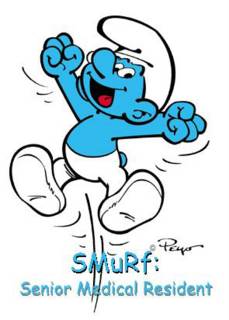It's change of service tomorrow. To us, it's kinda like the changing of the guards. We move to a new rotation. A new team of residents come in to take over our patients.
This usually happens at the first Saturday of the month (in this hospital, the first day of the week is Saturday). This usually starts with the new teams calling the old teams up on Friday to get info about the patients we're about to take care of. Also, to find out when our consultants want us to meet. And also if pre-rounds are needed on the weekends.
Pre-rounds. Always a big issue. If our team officially meets at, say, 8am for rounds, we need to have seen patients, examined them, ordered labs and meds and have written our progress notes, before 8am. Depending on the number of patients you're carrying, you can sometimes come in over an hour BEFORE rounds begin. And on change of service when the patients are all new to you and you may need 30 mins per patient, pre-rounding is traditionally not done. That's why there is usually a lot of complaining when we find out we're required to pre-round on day 1 (Usually also a sign of an uncompromising consultant. Bad).
I remember when I was a fresh intern, slower, looking after sick ICU patients. I was coming in at 530am to see patients. Those were dark times. Now, I can round on a patient in 5 minutes or less, and still provide good care.
I begin cardiology tomorrow. Again. But this time, as the
SMuRf (Senior Medical Resident). I will not carry any patients of my own. No need for daily notes; my minions will do that. My responsibility will mainly be of a supervisory one, and I write only supervisory admission notes. Call will still be q4d. For me, that means overnight on Sunday, Wednesday, Saturday etc etc. You get the picture.
With that, however, comes my greatest apprehension. I get anxious thinking about it now. The CODE PAGER. A 2nd pager besides our usual one. A simple, 3" by 4" device with a shrill alarm that wakes even the dead up. A code is simply, a cardiopulmonary arrest. Patient dying, or dead. Although sometimes people have been known to call codes for fainting spells. Most people have trouble going to the toilet for a Number 2 when they're carrying the code pager. Hey, you never know when a patient decides to crump when you're taking a dump.
When a code is called, the code pagers go off first. Followed by an overhead announcement seconds later.
The problem here is, being the cardiology SMuRf, you're the code team leader. You call the shots. Decide which medication you need to give to the patient. Immediately. Stat. Shock or no shock. CPR or not. ICU or CCU. Bleh. I'm gonna give myself irritable bowel thinking about it.
Thanks to shows like ER or Baywatch, many patients get the idea that if they code, you almost always bring them back. It's quite the opposite. Less than a third come back. Depending on the medical center, and how old or sick patients are, probability that the patient will live to walk out of the hospital ranges from less than 5% to 30%. And having seen enough codes, you realize, if it's my time to go, let me go quietly. A code is very traumatic, for the patient, family and staff. People shouting. Alarms. A crowd of medical staff in the room. The sound of the defibrillator. Sometimes, the smell of burnt flesh. Blood. Tubes. Needles.










